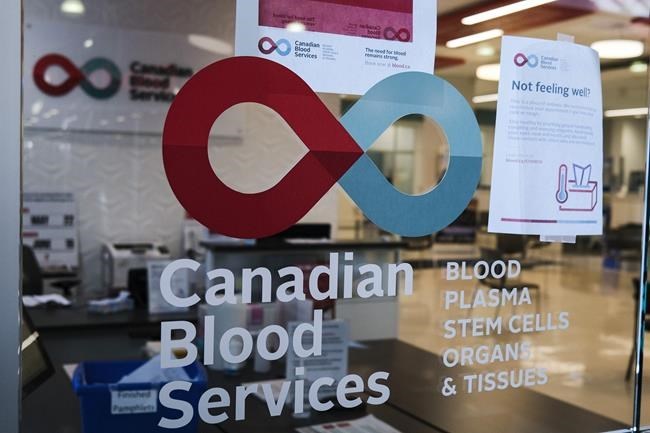OTTAWA — Canadian Blood Services wants to scrap a lifetime ban on sex workers giving blood in a further move to make blood donation more equitable.
The blood-donation service this month recommended to Health Canada that it abolish the lifetime ban on donation by people who have taken money or drugs in exchange for sex.
The ban, introduced 45 years ago, is set to be replaced by a one-year "deferral" after paid sex work.
The move follows an end last month to the ban on gay and bisexual men from donating blood, which was welcomed by MPs and LGBTQ advocates.
Canadian Blood Services said it would be prepared to recommend that Health Canada reduce the time sex workers have to wait before donating blood to less than a year, but wanted to make changes incrementally.
The length of time gay men were banned from giving blood was gradually reduced before being scrapped completely last month.
Catherine Lewis, a spokeswoman for Canadian Blood Services, said it had made the request to Health Canada to end the lifelong ban on sex workers donating blood in the past few weeks, having done research to ensure the recommendation would keep the blood supply safe.
She said the review was part of a drive to make sure blood donation policies were more inclusive and equitable.
"Right now we are looking at a year but we will continue to look at it in future. It doesn't end if it gets reduced to one year," she added.
The current lifetime ban on sex workers giving blood also extends to people who have had sex with a sex worker or exchanged money or drugs for sex. This policy is also being reviewed.
Justin Trudeau’s Liberals promised to scrap the ban on gay men donating blood during the 2015 election campaign. But it took years and $5 million worth of research into safety before it was recommended to Health Canada.
Canadian Blood Services, which runs the blood donation program, indicated it was confident the ban on sex workers giving blood could happen by the fall if approved by Health Canada.
The blood service is moving toward basing screening on higher-risk sexual behaviour such as anal sex.
By the end of September, all potential donors will be asked if they have had new or multiple sexual partners in the last three months, no matter their gender or sexual orientation.
If any potential donor replies yes, they would then be asked whether they have had anal sex with any of those partners. If they have, they would need to wait three months since that activity before donating blood.
The blood agency believes asking about sexual behaviour will allow it to more reliably assess the risk of infections such as HIV that can be transmitted through transfusions. All donated blood is tested and screened before it is given to patients.
This report by The Canadian Press was first published May 27, 2022.
Marie Woolf, The Canadian Press



